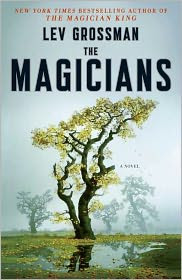 Nora McFarland is the author of the Lilly Hawkins Mysteries from Touchstone/Simon & Schuster. The latest book in the series, Hot, Shot, and Bothered, was released last month.
Nora McFarland is the author of the Lilly Hawkins Mysteries from Touchstone/Simon & Schuster. The latest book in the series, Hot, Shot, and Bothered, was released last month.A few weeks ago I asked the author what she was reading. Her reply:
On a recent flight from Atlanta to Los Angeles I had the pleasure of reading The Crime Writer by Gregg Hurwitz. It’s the best book I’ve come across in a long time. Aside from the excellent pacing and characters, it evoked everything I love about The City of Angels. The atmosphere of tarnished glamour and unexpected violence is skillfully rendered. This is Los Angeles as Ross MacDonald or Raymond Chandler might portray it, were they writing today.Visit Nora McFarland's website and join her on Facebook.
The main character is a thriller-writer who’s been convicted of murdering his former fiancée. With no memory of the crime, and released after earning a verdict of temporary insanity,he begins untangling the threads of what really happened that night. He attacks the mystery the only way he knows how, as a writer working out a story.
One of my favorite things about this book is that, despite protestations of innocence, the main character’s investigation is driven by a fear that he might have actually committed the murder. When another woman is killed, the reader is sure of the protagonist’s innocence in that crime, but Hurwitz cleverly dangles the possibility of a copycat or even someone framing the main character out of revenge for the first murder, thus leaving open the possibility of his guilt in the original crime. I was unsure right up until the very end. Part of why The Crime Writer is a rare pleasure.
My Book, The Movie: Nora McFarland's A Bad Day's Work.
--Marshal Zeringue






















































